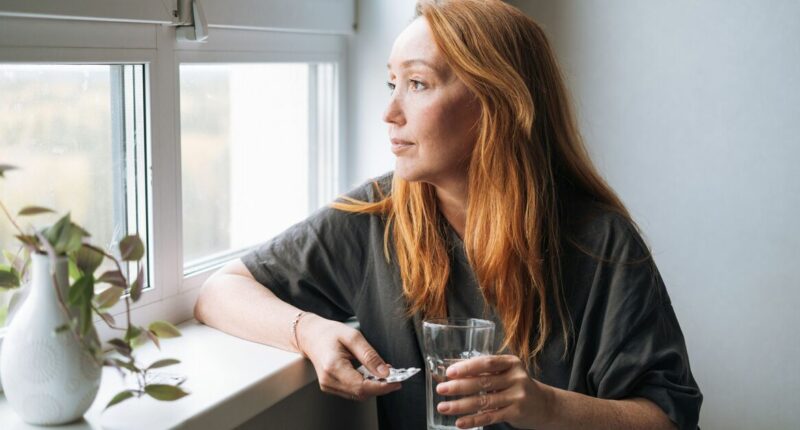Share this @internewscast.com
If you grapple with anxiety or sleep disturbances, your doctor might recommend lorazepam or alprazolam, commonly known as Xanax. These medications belong to the benzodiazepine class and function by interacting with gamma-aminobutyric acid (GABA), a neurotransmitter that promotes relaxation in the body.
Although both medications effectively alleviate anxiety, alprazolam is also utilized to manage seizures related to epilepsy. Despite their efficacy in addressing anxiety symptoms and related conditions, a clinical psychologist has advised caution regarding dependence on these drugs.
Fernando Azor, a psychologist renowned for his social media presence, shared with his TikTok audience that while benzodiazepines can soothe anxiety symptoms, they do not resolve the underlying issues. He underscored that physical manifestations of anxiety are not inherently harmful or in need of urgent medical treatment.
In a recent Spanish-language video, Fernando explained, “If you’ve used lorazepam or alprazolam to tackle an anxiety attack, it’s crucial to understand the underlying causes of such crises and those spikes in alertness and worry. This understanding is essential alongside the use of these medications. Alprazolam and lorazepam are widely recognized for their potent ability to diminish alertness, anxiety, and distress levels.”
He continued, “Often, individuals experiencing anxiety attacks struggle to confront and manage the physical symptoms induced by anxiety. Symptoms such as a racing heart, blurred vision, or a sense of unfamiliarity are frequently viewed as negative and something to avoid at all costs.”
“While these sensations are unpleasant, they are logical and reasonable responses depending on our perception of an event or its actual threat level. Whether the threat is subjective or objective, if we perceive it as a danger, our body’s reaction is understandable,” Fernando concluded.
Developing strategies to cope
Fernando adds: “The problem with anxiety crises is that we end up looking for the drug, which takes little time to take effect, especially if you put it under the tongue, when the effect is further abbreviated. We will effectively make the feeling disappear, but we will create the sensation that all symptoms of alertness and concern are wrong.
“And that would be like saying that being hungry is wrong. It is a sensation that can sometimes be very intense, even unpleasant, but it is not inherently bad. What happens then?
“Eating solves the issue. However, when it comes to anxiety, the only thing we do is create more sensation of distress and further dependence on a drug without creating a strategy to cope with it. “
“Through psychotherapy, it is possible to train people in skills and experiences that reduce the perception of discomfort when faced with symptoms of anxiety. The person learns not only through logic but also through experiences to live with these feelings without wanting to eliminate them so quickly.
“In this sense, it would not be as necessary to take Alprazolam, and it would effectively help moderate the person’s feelings of anguish, nervousness, or discomfort, until they disappear at some point.”
If you are experiencing signs of untreated anxiety, including difficulty sleeping, difficulty controlling your feelings, or feeling anxious a lot of the for at least six months, it is generally recommended that you see your GP. Guidance from the NHS highlights that your GP may offer a range of treatments, including:
- Medicines aimed at treating anxiety
- Talking therapies, such as CBT
- Referral to a community mental health team that could involve specialist treatment
Further guidance on generalised anxiety disorder, including its treatments, can be found here.












